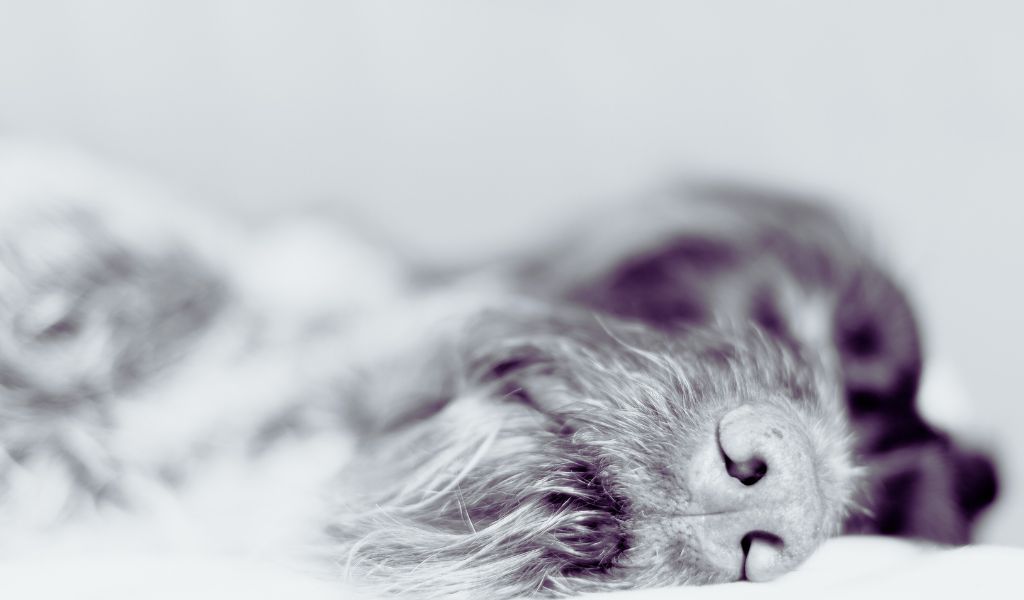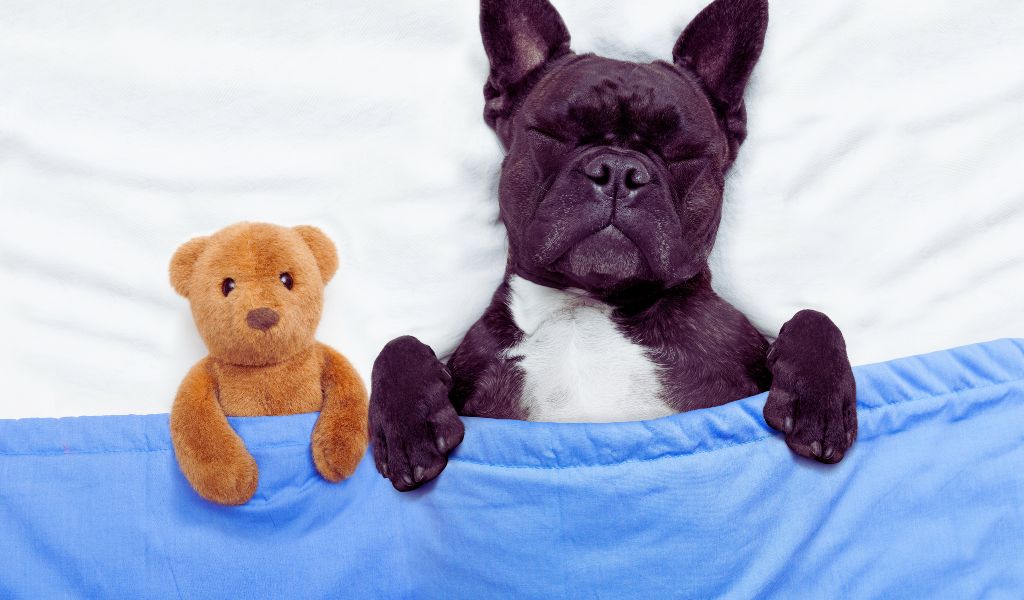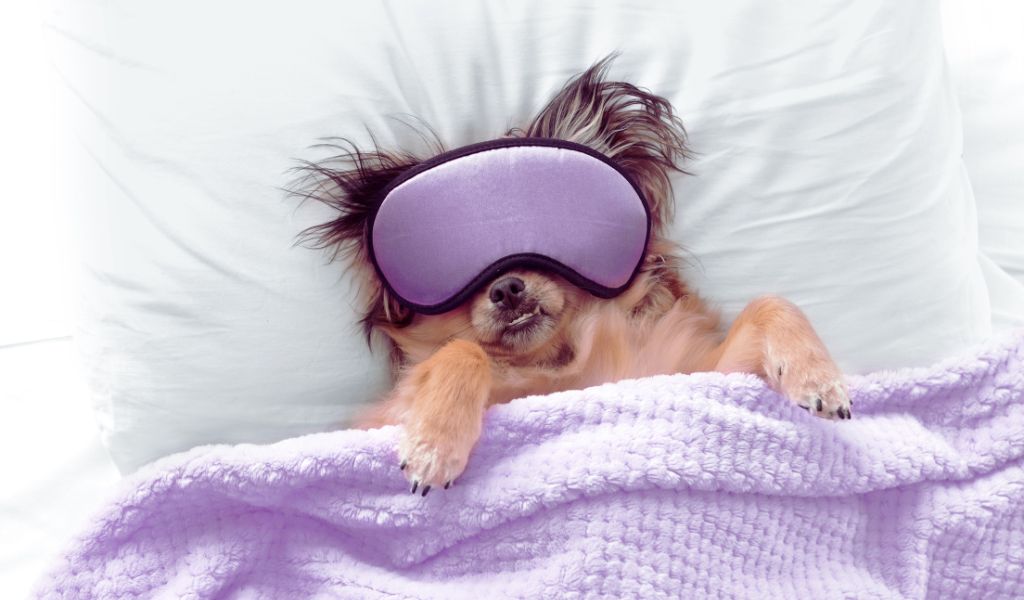Have you ever watched your dog as they slept and noticed their legs twitching, paws moving, and even heard them making small noises?
It may seem like they are acting out a scene from a dream, and that is exactly what is happening. Dogs, like humans, do indeed dream.
Yes, dogs do dream. Research suggests that dogs experience REM (rapid eye movement) sleep, which is associated with dreaming in humans. During REM sleep, dogs exhibit behaviours such as muscle twitches and eye movements, indicating that they are likely dreaming about past experiences, activities, and interaction.
Research shows that dogs have similar sleep patterns to humans, including the rapid eye movement (REM) stage which is when dreaming occurs.
During this stage, their brains are active, and they may experience dreams just like we do.

These dreams can consist of familiar activities, such as running, chasing, or playing with their favourite toy.
Understanding that dogs dream can provide insight into their behaviour and help us better understand the complex world of our canine companions.
So next time you see your dog dreaming away, know that they are experiencing their own little adventure in dreamland.
Understanding Canine Sleep Patterns
Before we can explore the realm of dog dreams, it’s important to understand the basics of canine sleep patterns.
Like humans, dogs experience different stages of sleep, including light sleep, deep sleep, and rapid eye movement (REM) sleep.
During REM sleep, which is when dreaming occurs in humans, dogs exhibit similar physiological signs, including twitching, paw movements, and even vocalisations.
This has led scientists to believe that dogs, like us, may indeed experience dreams.
The Evidence for Canine Dreams
While we can’t ask dogs directly about their dreams, researchers have used various methods to study canine sleep patterns and behaviours to infer whether dogs dream.
One notable study conducted by Harvard psychologist Dr. Stanley Coren involved observing the sleep behaviour of dogs and monitoring their brain activity.
The results suggested that dogs experience REM sleep and exhibit behaviours consistent with dreaming, such as muscle twitches and eye movements.
Additionally, imaging studies have shown that the areas of the brain involved in processing emotions and memories are active during REM sleep in dogs, further supporting the idea that they may be dreaming about past experiences or events.

What Do Dogs Dream About?
While we can’t know for sure what dogs dream about, it’s reasonable to assume that their dreams are influenced by their daily experiences, activities, and interactions.
Just as humans often dream about familiar people, places, and events, dogs may dream about things they have encountered in their lives.
For example, a dog that loves to play fetch might dream about chasing a ball, while a dog that has had negative experiences with fireworks might have nightmares about loud noises.
Dogs may also dream about familiar scents, sounds, and other sensory stimuli.
Frequently Asked Questions About Dog Dreams
Do all dogs dream?
While research suggests that most mammals, including dogs, experience REM sleep and likely dream, individual differences in sleep patterns and brain activity may affect the frequency and intensity of dreaming.
Do puppies dream differently than adult dogs?
Puppies tend to spend more time in REM sleep than adult dogs, which may mean they dream more frequently. Their dreams may also reflect their more limited life experiences compared to adult dogs.
Should I wake my dog up if they seem distressed during sleep?
It’s generally best to let sleeping dogs lie. Most of the time, dogs will settle back into a peaceful sleep on their own. If your dog frequently appears distressed during sleep or exhibits unusual behaviours, it may be worth consulting with a veterinarian to rule out any underlying health issues.
Can I tell what my dog is dreaming about based on their movements?
While it’s tempting to speculate about the content of your dog’s dreams based on their movements during sleep, it’s impossible to know for sure. Dogs may exhibit a variety of behaviours during dreams, ranging from gentle twitching to more pronounced movements, but the specifics of their dreams remain a mystery.
Do different dog breeds dream differently?
There’s no evidence to suggest that different dog breeds dream differently. However, individual differences in personality, experiences, and daily activities may influence the content of a dog’s dreams regardless of breed.
Unlocking the Secrets of Canine Slumber
While we may never know for certain what our dogs are dreaming about, the evidence strongly suggests that they do indeed experience dreams during REM sleep.
Just as our dreams offer a window into our subconscious minds, perhaps the dreams of dogs provide insight into their thoughts, feelings, and memories.




